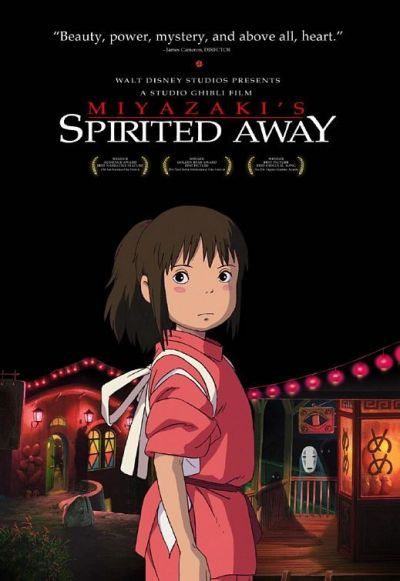Top Japanese movies of the decade

The Japanese production Okuribito ( Departures) caught the movie world by surprise in February when it won the Oscar for best foreign language film, becoming the first Japanese movie to win in the category for more than 50 years and bringing international attention to other productions.
The subject matter of Okuribito also caught the industry by surprise - it is the tale of a classical musician who loses his job and goes to work in a funeral parlor - but it does serve to underline the depth and breadth of a domestic industry that is today a great deal more than Godzilla and sword-wielding samurai warrior titles.
With the end of the first decade of the new millennium, Japanese English-language Metropolis magazine has put together a list of the best 10 Japanese films of the decade. And while most of them might be available with English-language variations outside of Japan, the others remain homegrown secrets - which movie experts here consider something of a shame.
Top of list is Daremo Shiranai, which was released in 2004 and is known abroad as Nobody Knows. The work of famed director Hirokazu Koreeda, it tells the tale of two children who have to fend for themselves after being abandoned by their mother. Yuya Yagira was just 14 when he walked away from the Cannes Film Festival with the Best Actor award for his performance.
Second place was awarded to Sen to Chihiro no Kamikakuishi ( Spirited Away) by Hayao Miyazaki, the undisputed master of Japan's animated movie scene. Released overseas as Spirited Away, it is Japan's highest-growing movie of all time and was widely acclaimed as a masterpiece when it came out in 2001.
The 2008 title Tokyo Sonata is a powerful drama that starts out as the tale of a salaryman who loses his job and addresses many of the problems of contemporary Japan. Another animated film comes in fourth, with 2004's Mind Game described as "mesmerizing" and "astounding."
The oddly-named Fish Story opened in Japan in 2009 and wends together numerous strands into a single plot line, while the late director Kei Kumai oversaw the sixth film on the list, Nihon no Kuroi Natsu ( Darkness in the Light) in 2001.
Vibrator, the tale of a promiscuous and confused women trying to come to terms with life, is in seventh place and won the Grand Prix for director Ryuichi Hiroki at the Tokyo International Film Festival in 2003. Gururi no Koto ( All Around Us) was the work of Ryosuke Hashiguchi, Japan's first openly gay filmmaker, and hit big screens to widespread acclaim here in 2008.
The final two places in the list of the best Japanese films of the decade go to Shinya Tsukamoto for Vital, the story of a medical student who loses his girlfriend and is then required to perform the autopsy on her after she is involved in a car accident, and Eureka, directed by Shinji Aoyama.
JR
Subscribe to Independent Premium to bookmark this article
Want to bookmark your favourite articles and stories to read or reference later? Start your Independent Premium subscription today.

Join our commenting forum
Join thought-provoking conversations, follow other Independent readers and see their replies